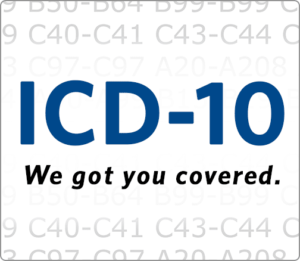 Penalties under the Physician Quality Reporting System (PQRS) program are typically around 2% of the Medicare fee schedule. But the Centers for Medicare & Medicaid Services (CMS) is offering doctors and group practices a temporary waiver of that reimbursement downgrade due to recent updates to the International Classification of Disease (ICD)-10 code sets.
Penalties under the Physician Quality Reporting System (PQRS) program are typically around 2% of the Medicare fee schedule. But the Centers for Medicare & Medicaid Services (CMS) is offering doctors and group practices a temporary waiver of that reimbursement downgrade due to recent updates to the International Classification of Disease (ICD)-10 code sets.
Clinical Modification and Procedural Coding System updates include many additions and deletions
The updates in question—to the ICD-CM (Clinical Modification) and ICD-PCS (Procedural Coding System)—went live in October of 2016. According to a statement by the CMS on its website:
“As a result of the consolidated coding updates, a large number of new codes were added or removed from the ICD-10 code set.”
These additions and deletions will impact the PQRS, and therefore the bottom line for physicians. And apparently the updates have interfered with CMS gathering certain quality-measures data needed to do the PQRS math for one service period.
The agency goes on to explain how it will take those new codes into account when it comes to provider payments:
“CMS has examined impact to quality measures and has determined that the ICD-10 code updates will impact CMS’s ability to process data reported on certain quality measures for the 4th quarter of CY 2016. Therefore, CMS will not apply the 2017 or 2018 PQRS payment adjustments, as applicable, to any EP or group practice that fails to satisfactorily report for CY 2016 solely as a result of the impact of ICD-10 code updates on quality data reported for the 4th quarter of CY 2016.”
Providers get a temporary penalty-pass
Stanley Nachimson is a health IT consultant expert on the ICD-10 codes. “What they’re basically saying,” he explains, “is that new coding updates apparently had some impact on their quality measures and they will not be able to process data on those. It sounds like the first three quarters were fine, but in the fourth quarter it had some impact on their quality measures. They’re not going to penalize providers if they couldn’t come up with PQRS quality measures.”
Sue Bowman is senior director of coding policy and compliance at the American Health Information Management Association. She observes that some specialties in particular seemed to be more directly impacted by the new ICD-10 code revision. Referring to the CMS’s frequently asked questions website page, she notes, “It says the majority of the codes are for diabetes, pregnancy, cardiovascular, oncology, mental health and eye diseases.”
The CMS has not expressly noted when doctors can expect the latest ICD-10 code updates to be the subject of their own updates. But Bowman finds it encouraging that the CMS has identified the issue and has a plan in place to prevent physicians from experiencing ill effects from it. “The CMS is pretty good about working with providers,” she says. “They recognized this is a problem and the providers shouldn’t be penalized for it.”
CMS to publish addendum addressing performance value sets for 2017
Looking to the near future and what providers can anticipate in terms of the performance period they’re in now, the CMS states:
“For the 2017 performance period, CMS will publish an addendum containing updates relevant to the ICD-10 value sets for eCQMs in the Merit-based Incentive Payment System Program (MIPS). CMS will provide additional information on the addendum later this year.”
For more information/questions regarding any legal matters, please email [email protected] or call 310.203.2800.